The Long War Journal (Site-Wide) |
|
Posted: 26 Jan 2015 11:57 AM PST
In the past two days, Syrian
rebels overran a base belonging to Brigade 82 of the Syrian Army in the
southern province of Deraa. The Brigade 82 facilities, which sit close to the
town of Sheikh Maskeen and a highway connecting Damascus with Jordan, were considered a
key part of the Assad regime's defenses. The Assad government
has responded to the rebel takeover by pounding the
insurgents' positions inside the base and Sheikh Maskeen with
its military jets and helicopters.
The base reportedly housed
surface-to-air missiles and other heavy weaponry, at least some of which
appears to have fallen into the rebels' hands. Unverified photos posted on
Twitter show rebels in possession of various missiles and launchers. For
example, Sheikh Abdallah Muhammad al Muhaysini, a popular al
Qaeda-linked Saudi cleric in Syria, has praised the rebels'
takeover and posted photos of missiles that have purportedly fallen into
their possession. The photos, which have been tweeted and retweeted by a
number of people, can be seen to the right.
A number of insurgency groups have
posted videos and photos online showing their fighters taking part in the
assault on the base.
The Al Nusrah Front, al Qaeda's
official branch in Syria, and the Islamic Front, an alliance of Islamist
groups, are among them. Ahrar al Sham, an al
Qaeda-linked organization, leads the Islamic Front.
Screen shots and photos from the
Al Nusrah Front and the Islamic Front are included at the bottom of this
article.
Western-backed rebels, including
fighters from the First Army, also participated in the raid on the Brigade 82
base. The First Army issued a statement before the operation was launched
saying its men were going to take part in the rebels' new southern offensive.
The First Army also released a statement afterwards saying that the base had
fallen.
A leader of the First Army
identified as Colonel Saber Safar spoke with Reuters
about the significance of the base falling into rebel hands. "This
advance will help us cut supply routes of the regime forces in the south from
their supplies in the north to be able to eventually take over Deraa city,"
Safar told Reuters, which described the First Army as "a major faction
of Western-backed rebels in the 'Southern Front' grouping."
In early January, Asharq Al Awsat reported
that the First Army was formed by three rebel groups, each of which had
operated as part of the Free Syrian Army. Asharq
Al Awsat described the three groups that make up the First Army
as "moderate rebel factions," which said they wanted to "unify
all FSA factions under a joint military command." The publication cited
a commander in the group as saying that they would not only fight Bashar al
Assad's regime and its proxies, but also work to contain the growing
influence of extremists, meaning the Al Nusrah Front.
The battle for Brigade 82's base,
however, shows that the First Army and other "moderate" rebels
continue to cooperate with al Qaeda and its extremists allies in southern
Syria.
Several pictures and screen shots
of other rebels taking part in the raid are published below.
Al Nusrah Front photos and
videos from the capture of Brigade 82 base
In a tweet on one of its official
feeds, Al Nusrah announced that the base had fallen under the rebels'
complete control on Sunday. The photo below accompanied the tweet:
This screen shot from one of the
Al Nusrah Front's videos shows a fighter participating in the battle:
In one of its videos, the Al
Nusrah Front shows fighters pulling down a statue that appears to be a bust
of Syrian dictator Bashar al Assad:
Al Nusrah showcases some of the
weapons and ammunition it took possession of inside Brigade 82's base:
More "booty" recovered
at the base by Al Nusrah:
The Islamic Front's and Ahrar
al Sham's propaganda videos
One video posted on the Islamic
Front's official Twitter feed shows fighters launching mortar rounds at
Brigade 82:
Smoke in the distance indicates
where the mortar round struck:
In a separate video, an Islamic
Front fighter celebrates after launching a shoulder-fired missile:
An Islamic Front fighter rallies
his fighters from inside Brigade 82's base:
Videos showing the First Army and other rebel groups participating in the attack
Shaam News Network has posted
several videos of fighters walking through the captured base. One video shows
fighters walking by the same arms cache that the Al Nusrah Front featured in
its own production:
A short video
posted online purportedly shows fighters from the First Army firing on the
base:
A video that is
just over one minute long shows fighters affiliated with the
Free Syrian Army at the Brigade 82 base:
|
|
Posted: 26 Jan 2015 11:57 AM PST
Major attacks by Boko
Haram, from 2014 through present. Map created by Laura Grossman for The Long War Journal.
Over the weekend, Boko Haram launched a series of attacks in the latest part of its vicious campaign to take control of Nigeria and build its caliphate. Concentrated in the northeast, a number of villages came under fire within hours of an official visit by US Secretary of State John Kerry to Lagos.
Around 8 pm on Saturday evening,
Boko Haram executed several
attacks on villages in the Michika Local Government Area in
eastern Adamawa State. Targeting Mbororo, Shahu, Liddle, Garta, Kamale and
Ghumci, the insurgents arrived on motorcycles and in vans and then went house
to house slaughtering villagers. The Islamists also set fire to many homes
after looting them. It is not clear how many people were killed or how many
were able to escape into the mountains.
Shortly after midnight on Sunday,
Boko Haram launched a three-pronged
attack on Borno State's largest city and capital, Maiduguri.
Nigerian security forces engaged in fierce fighting with the terrorists,
keeping them from taking the city. The attackers reportedly
tried to take control of Maiduguri's airport, which in addition to hosting
civilian flights services Nigeria's air force.
The exchanges of gunfire reportedly
stopped at around 3:30 a.m. as the jihadists retreated. Boko
Haram fighters subsequently returned around 5:40 a.m., re-engaging with
Nigerian forces. The air force then deployed jets around 11 a.m. to push back
the renewed jihadist offensive. The day before
the battle, Nigerian President Goodluck Jonathan had visited Maiduguri on
campaign stop ahead of presidential elections on February 14. With the
retreat of Boko Haram, a city-wide curfew was lifted today. However, analysts have
noted that hardships are likely not over yet for residents of
Maiduguri as the city has strategic value for the terrorists.
A short while later on Sunday
morning, insurgents from Boko Haram also attacked and
took control of the town of Monguno, 80 miles northeast of the
state capital. Monguno has served as a buffer between Bokon Haram strongholds
in the north, and Maiduguri.
The 243 Battalion of the Nigerian
army, comprised of about 1,400 solders stationed in Monguno, was overwhelmed
by the insurgents. Military sources reported to Sahara
Reporters after the battle that "We still don't know what
has happened to them [Nigerian soldiers], but we know that Boko Haram now
controls the barracks and Monguno town." Today, Nigerian forces are reportedly
fighting to take back control of Monguno through air strikes.
About 24 miles southeast of
Maiduguri, Boko Haram also hit Konduga
on Sunday. However, the Nigerian military claimed that it repelled the
attack.
As northeastern towns were being
targeted on Sunday, American Secretary of State John Kerry touched down in
Lagos to meet with President Jonathan and his rival candidate Muhammadu Buhar
to express support for the upcoming elections. Kerry noted
"The fact is that one of the best ways to fight back against Boko Haram
and similar groups is by protecting the peaceful, credible, and transparent
elections that are essential to any thriving democracy, and certainly,
essential to the largest democracy in Africa. It's imperative that these
elections happen on time as scheduled, and that they are an improvement over
past elections, and they need to set a new standard for this democracy."
In a press briefing after the
meetings, Secretary Kerry spoke
of the United States' "deeply engaged" relationship with Nigeria.
He noted that the US is "helping Nigeria to increase the capability of
its military; to improve its counter-incident explosive detection and
civil-military operations capacity; and to carry out responsible
counterterrorism operations." He also pointed to additional law
enforcement assistance and ongoing crisis management training.
Interestingly, Secretary Kerry
highlighted that the United States' most recent assistance in the fight
against Boko Haram was not in fact given to Nigeria. According to the Secretary of
State, "Most recently, we've worked with Nigeria's
neighbors Cameroon, Chad, and Niger to develop institutional and tactical
capabilities that will increase the joint efforts between our countries in
order to be more effective."
The New York Times reported ahead of
Kerry's visit that relations were "so strained" between American
military trainers and the Nigerian military that "the Pentagon often
bypasses the Nigerians altogether, choosing to work instead with security
officials in the neighboring countries of Chad, Cameroon and Niger." The
report also noted that the US does not include raw data in intelligence
shared with Nigeria due to concerns about Boko Haram's infiltration of the
government. In 2014, the US also prevented
Israel from reselling American-made helicopters to Nigeria. The US was acting
on concerns regarding the Nigerian military's maintenance capabilities and
potentially inhumane treatment of civilians.
As Nigeria's battle with Boko
Haram pushes forward, its success may well be dependent upon the support it
receives from its regional allies and other international partners, including
the United States. Given both the Nigerian military's poor track record
against the terrorist outfit, local security forces are in need international
support.
|
|
Posted: 26 Jan 2015 09:47 AM PST
The US reportedly
killed 3 suspected members of al Qaeda in the Arabian Peninsula (AQAP) in a
drone strike today that took place in a border region between the provinces
of Shabwa and Marib. The strike is the first reported in Yemen in more than
two and a half months.
Arabic-language reports indicated that the
strike targeted a Suzuki Vitara carrying AQAP operatives, allegedly resulting
in the complete destruction of the vehicle and the deaths of at least three
individuals.
The remotely piloted Predators or
the more deadly Reapers fired four missiles at the vehicle, according to
media reports. Tribal and security sources in Yemen's Marib province confirmed
that a vehicle had been targeted by a US drone.
Today's strike is the first since
the Nov. 12, 2014 strike
in Shabwa province that reportedly killed 7 suspected AQAP members as they
gathered "under a group of trees" in Azzan. Today's strike is also
the first in Yemen in 2015, as well as the first since the resignation
of the Yemeni government, including President Abd Rabbo Mansour Hadi, last
week.
The resignations came amid reports
that the Houthi rebels, who have been challenging the central government
since late September,
had kidnapped Yemen's chief-of-staff and were placing many Yemeni ministers
under house arrest, including President Hadi.
Today's strike in Yemen also comes
just one day following President Barack Obama's remarks
in India regarding Yemen, in which he claimed that the current instability in
Yemen due to the Houthi rebel offensive will not affect US counter-terrorism
efforts in the country.
Last week, counterterrorism
officials and Yemen analysts suggested
that the collapse of the Yemeni government, a staunch ally of the United
States' war on terror, might render efforts to counter AQAP in Yemen
"paralyzed." Some US officials even claimed
that the current unrest in Yemen had forced the US to suspend some operations
in the country in light of the fact that it relied heavily on intelligence
provided by the Yemeni government and military.
The following pictures of the
vehicle targeted in today's strike were released by the Arabic media (Source:
Al Masdar Online):
|
|
Posted: 25 Jan 2015 05:46 PM PST
A media organization linked to
Boko Haram, al Urwa al Wuthaqa, has released two images purporting to show
children training somewhere in northeastern Nigeria.
The two photos show at least a
dozen children in what appears to be a weapons training program. Several are
seen holding AK-47 assault rifles, while others are seen holding cutouts of
weapons. Some children appear to be girls, while the majority pictured are
young boys.
Boko Haram joins several other
jihadist groups around the world in showcasing training for young children.
In 2013, the Turkistan Islamic Party, an al Qaeda affiliated group that
operates in Afghanistan, Pakistan, China, and Syria, released a
video showing kids training in Pakistan. The Taliban are also
known to operate training camps, including
those for suicide bombings, for youth in Afghanistan and
Pakistan.
Additionally, The Long War Journal has
identified several training camps for children in Iraq and Syria. These camps
are run by jihadist groups such as the Islamic State, the Al Nusrah Front,
Junud al Sham, and Ahrar al Sham. [For more on training camps for children in
Iraq and Syria, see LWJ
report Jihadists tout
training camps for children in Iraq and Syria]
Boko Haram is an al Qaeda-linked
group operating in Nigeria. The group controls vast amounts of territory in
the northeastern part of the country. In addition to killing countless
Nigerians, the group also poses a threat to neighboring countries. [For more
information on Boko Haram, see LWJ
reports Boko Haram
continues to slaughter Nigerians, Boko Haram
overruns Multinational Joint Task Force base, and Chad joins
Cameroon, Nigeria, in fight against Boko Haram]
|
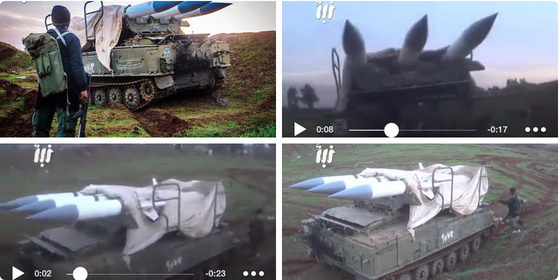
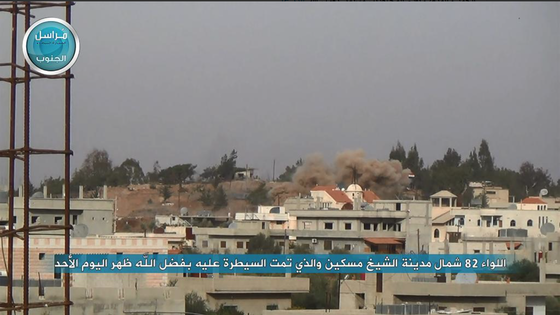
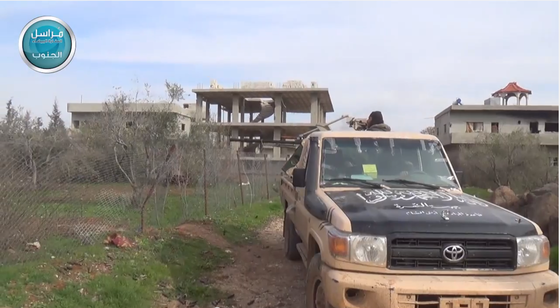
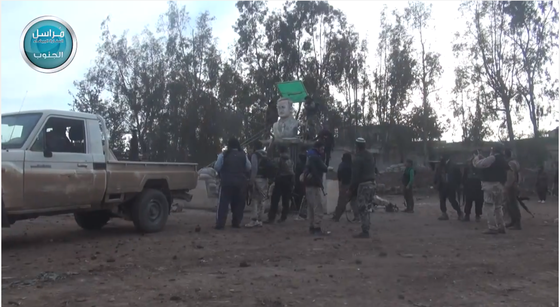
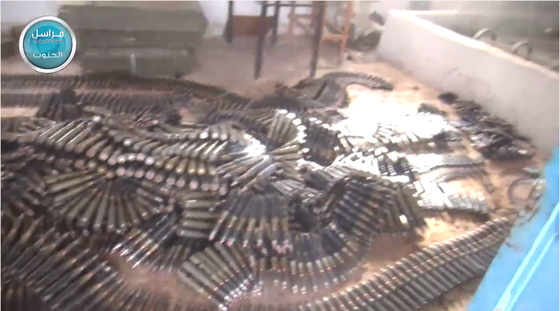
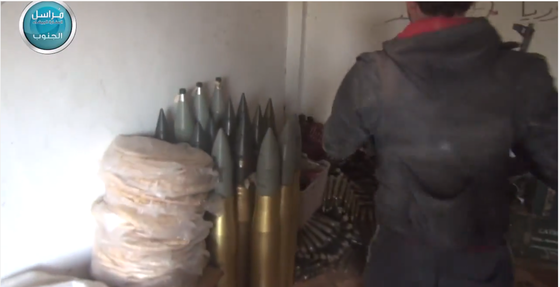
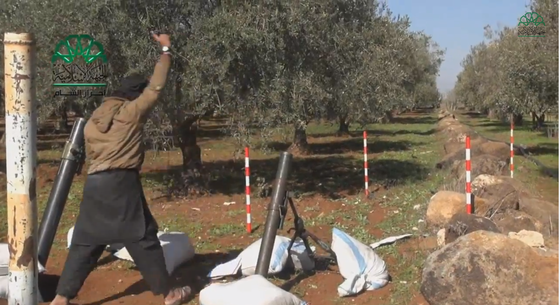
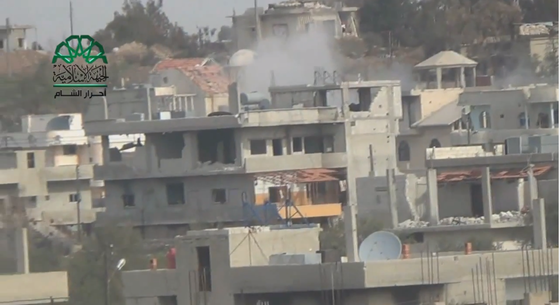
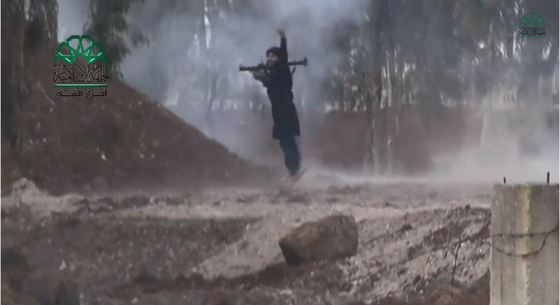
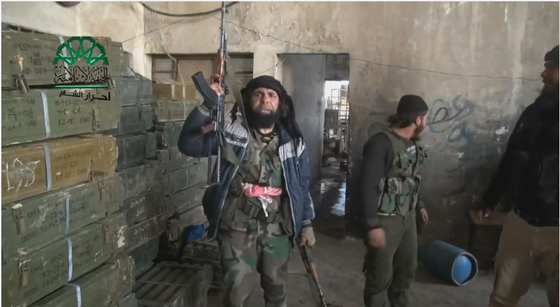
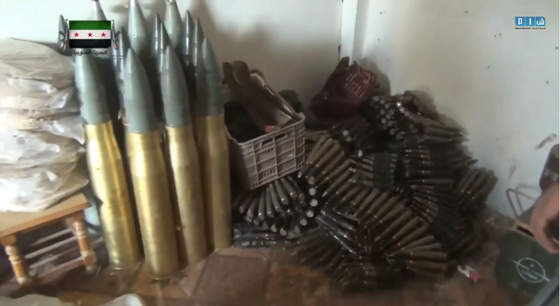
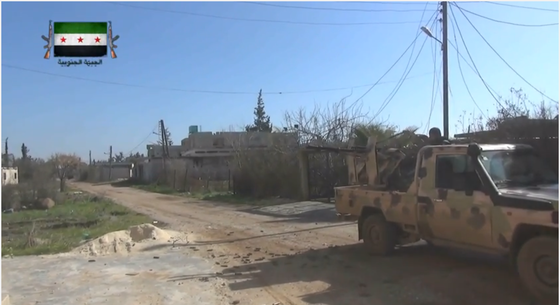
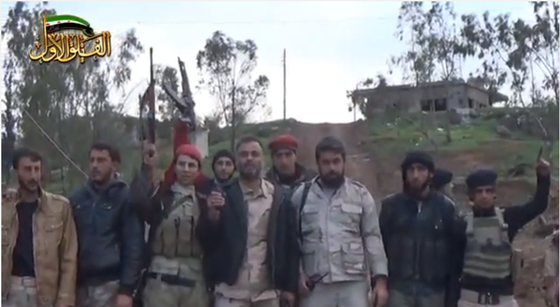
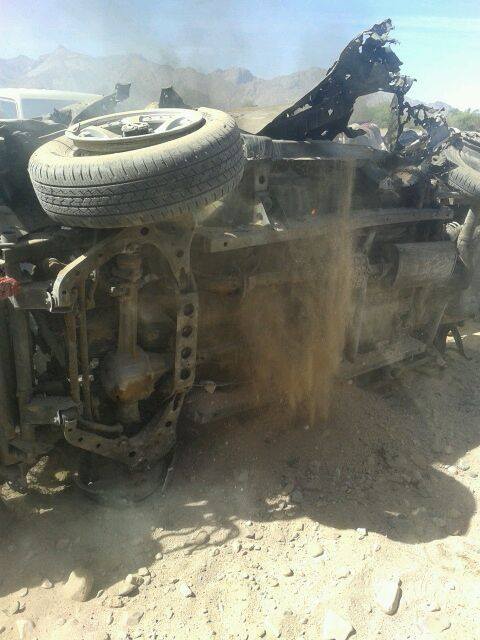
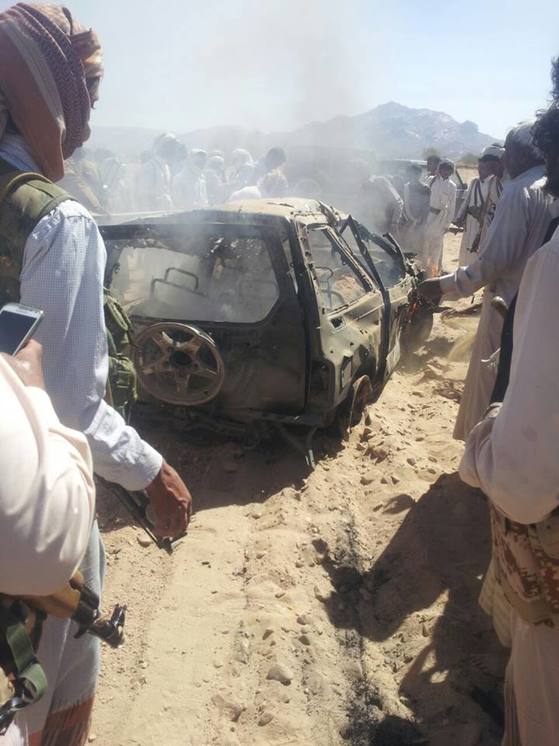
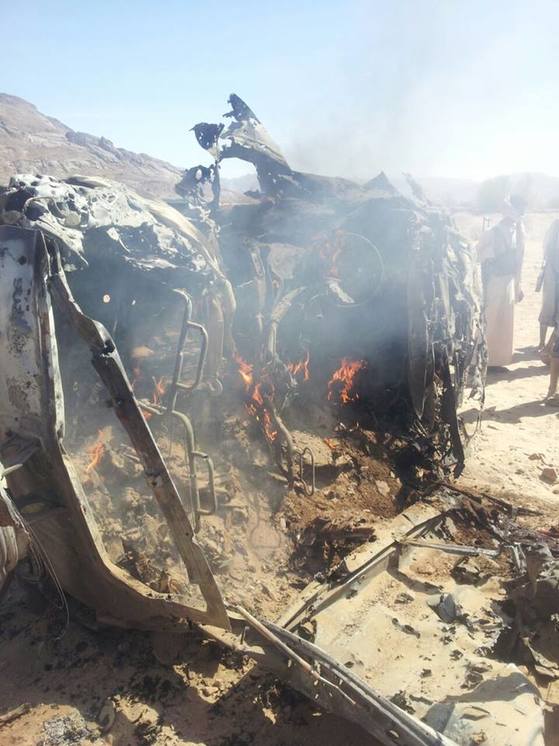
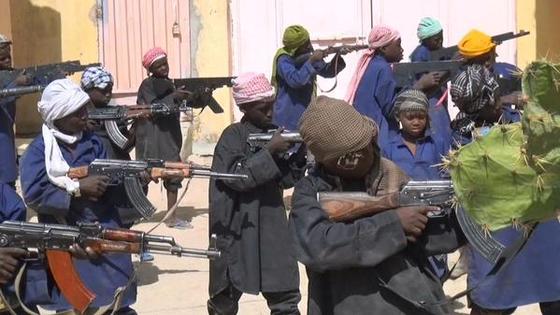
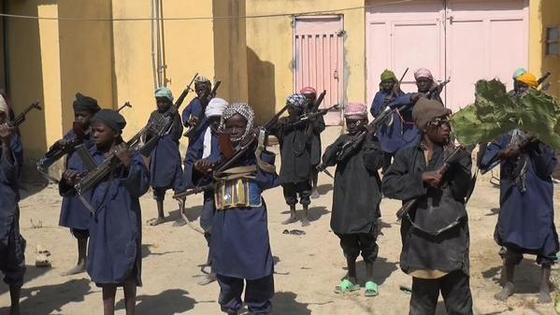






































No comments:
Post a Comment